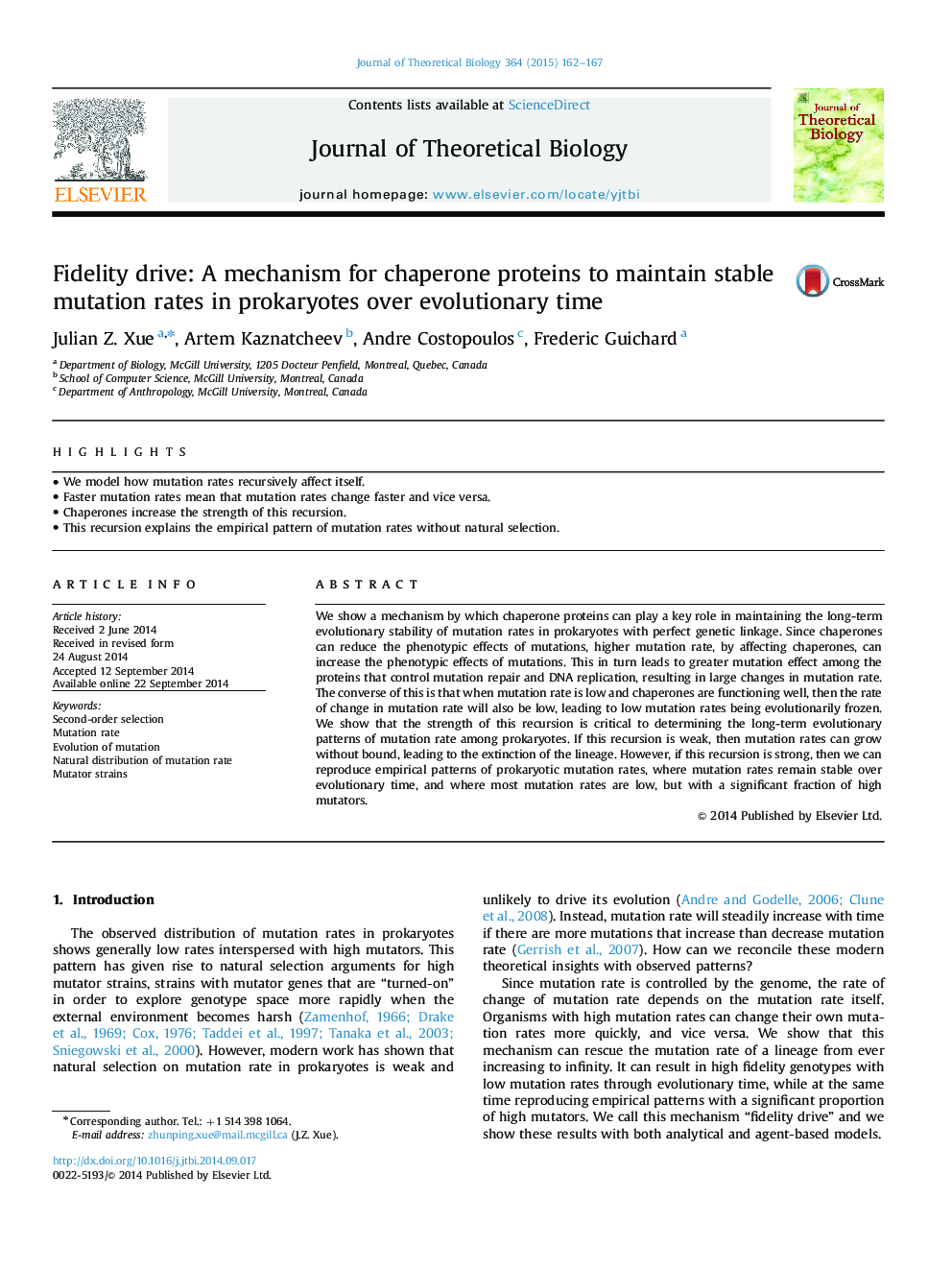| Article ID | Journal | Published Year | Pages | File Type |
|---|---|---|---|---|
| 6370084 | Journal of Theoretical Biology | 2015 | 6 Pages |
Abstract
We show a mechanism by which chaperone proteins can play a key role in maintaining the long-term evolutionary stability of mutation rates in prokaryotes with perfect genetic linkage. Since chaperones can reduce the phenotypic effects of mutations, higher mutation rate, by affecting chaperones, can increase the phenotypic effects of mutations. This in turn leads to greater mutation effect among the proteins that control mutation repair and DNA replication, resulting in large changes in mutation rate. The converse of this is that when mutation rate is low and chaperones are functioning well, then the rate of change in mutation rate will also be low, leading to low mutation rates being evolutionarily frozen. We show that the strength of this recursion is critical to determining the long-term evolutionary patterns of mutation rate among prokaryotes. If this recursion is weak, then mutation rates can grow without bound, leading to the extinction of the lineage. However, if this recursion is strong, then we can reproduce empirical patterns of prokaryotic mutation rates, where mutation rates remain stable over evolutionary time, and where most mutation rates are low, but with a significant fraction of high mutators.
Keywords
Related Topics
Life Sciences
Agricultural and Biological Sciences
Agricultural and Biological Sciences (General)
Authors
Julian Z. Xue, Artem Kaznatcheev, Andre Costopoulos, Frederic Guichard,
